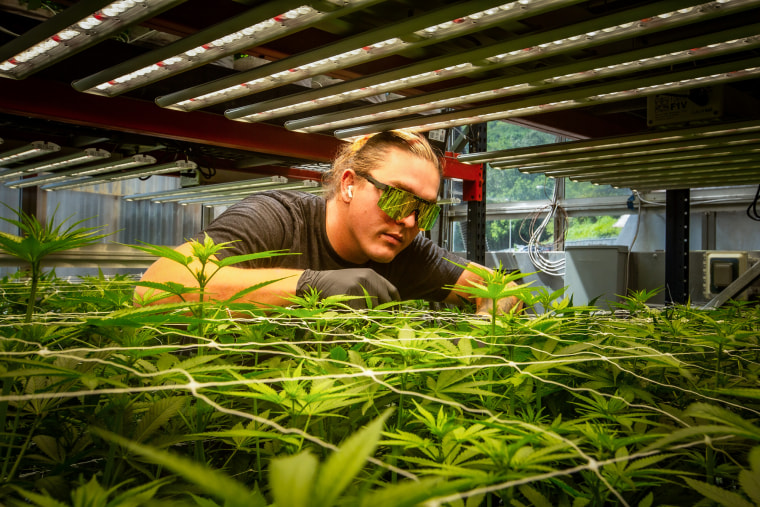Members of the Eastern Band of Cherokee Indians will vote Thursday on whether their Tribal Council should legalize the recreational use of marijuana on their reservation in western North Carolina.
Although the state still criminalizes the possession of even small amounts of marijuana, the sovereign tribal nation has the authority to regulate cannabis on the Qualla Boundary, the tribe’s 57,000-acre reservation.
The referendum asks whether tribal members support legalizing the possession and use of marijuana for anyone 21 and over and requiring the council to develop legislation to regulate the market.
Tribal Council Chairman Richard French said the 12-member council voted in June to put the question on the ballot to gauge the level of support for legalization.
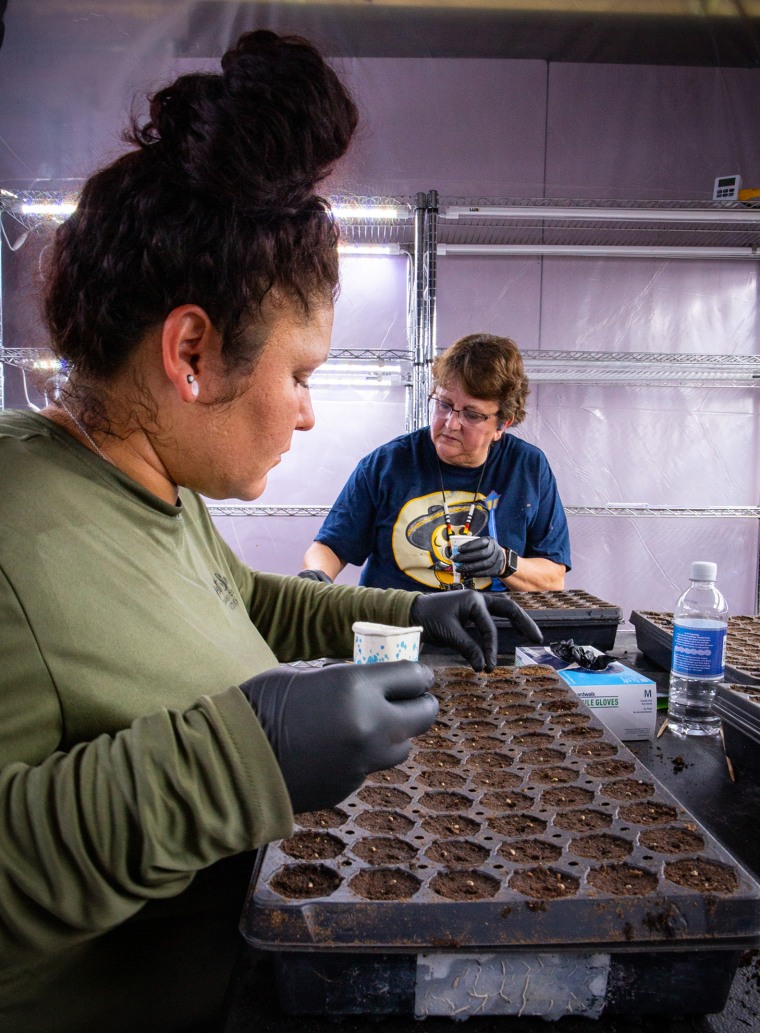
If passed, Thursday’s vote will not automatically legalize the sale and use of marijuana, French added. But he said the council plans to abide by the referendum results when it decides whether to allow recreational use.
“We made the move to give it to the people, and if the people vote it down, then that’s what we’ll go with,” he said.
The council decriminalized possession of small amounts of cannabis in May 2021, making the reservation the only place in the state to legally carry marijuana. Later that year the council legalized medicinal marijuana and started laying the groundwork for a tribal-owned dispensary that is set to open later this fall.
The tribe’s move into the cannabis industry is a potentially lucrative one — with strong support in recent polls for medicinal and recreational use but little support for legalization in the Republican-led state House.
But some — including Principal Chief Richard Sneed — worry that the tribe could be expanding too fast.
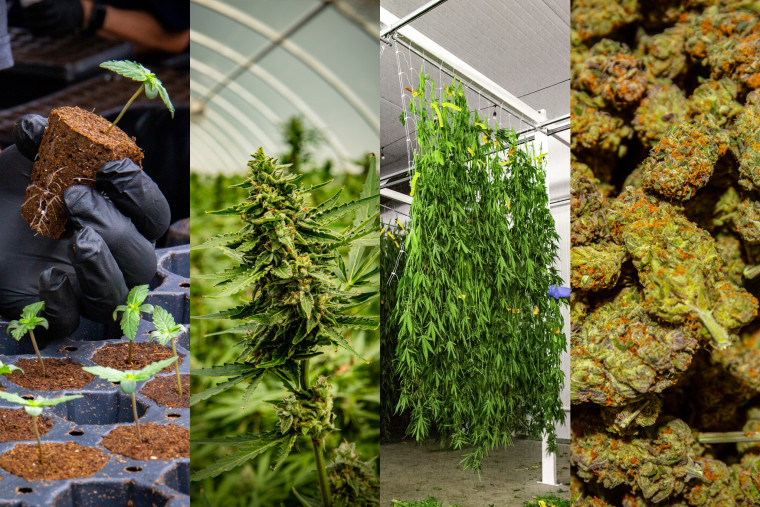
Sneed has pushed for medicinal use since becoming principal chief in 2017, but said he thinks the tribe should fully establish its medical program before it starts selling to everyone. “I feel like we’re putting the cart before the horse jumping straight to adult use having not even had the experience of running a dispensary under a medical program,” he said.
French said he believes there is widespread support for medicinal marijuana among tribal citizens, but he’s not sure how they feel about allowing recreational use of the drug.
There’s also been pushback from U.S. Rep. Chuck Edwards, a Republican whose district includes the Qualla Boundary. Edwards, who declined a request for an interview, on Friday introduced the Stop Pot Act, which would withhold some federal funds from tribal nations that legalize recreational marijuana, citing the upcoming vote by the Eastern Band of Cherokee Indians.
In a column published last month in the tribe’s newspaper, the Cherokee One Feather, Edwards urged tribal citizens to reject recreational use, alluding to “criminal activity that would inevitably follow.”
“It is my hope that cooler heads will prevail and this referendum will be defeated,” the congressman wrote. “The safety of our communities and our mountain way of life may depend on it.”
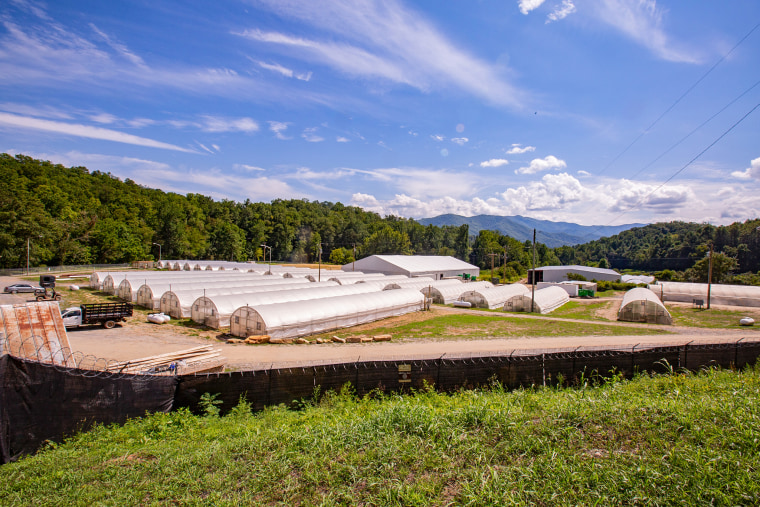
A survey of registered voters in the state released in February by Meredith College, a private liberal arts college in Raleigh, found that 73% approve of legalizing medical marijuana. However, a bill to legalize medicinal use stalled in the House and is unlikely to get a hearing until next year.
“What a brilliant business decision by the Eastern Band of Cherokee Indians to say, ‘OK, well we’re gonna move on with this,’” said Kevin Caldwell, southeast legislative manager for the Marijuana Policy Project, a nonprofit organization dedicated to legalizing cannabis. “To meet a need that is not being met in the greater state of North Carolina, more power to them.”
Thirty-eight states have legalized medical use of marijuana, and 23 allow recreational use, according to the National Conference of State Legislatures. The delay, Caldwell said, means the state Legislature is passing on its opportunity to regulate the estimated $3 billion illicit market in North Carolina.
“You already have this huge underground economy in North Carolina based around cannabis, and they continue to just stick their head in the sand and let that market go,” Caldwell said.
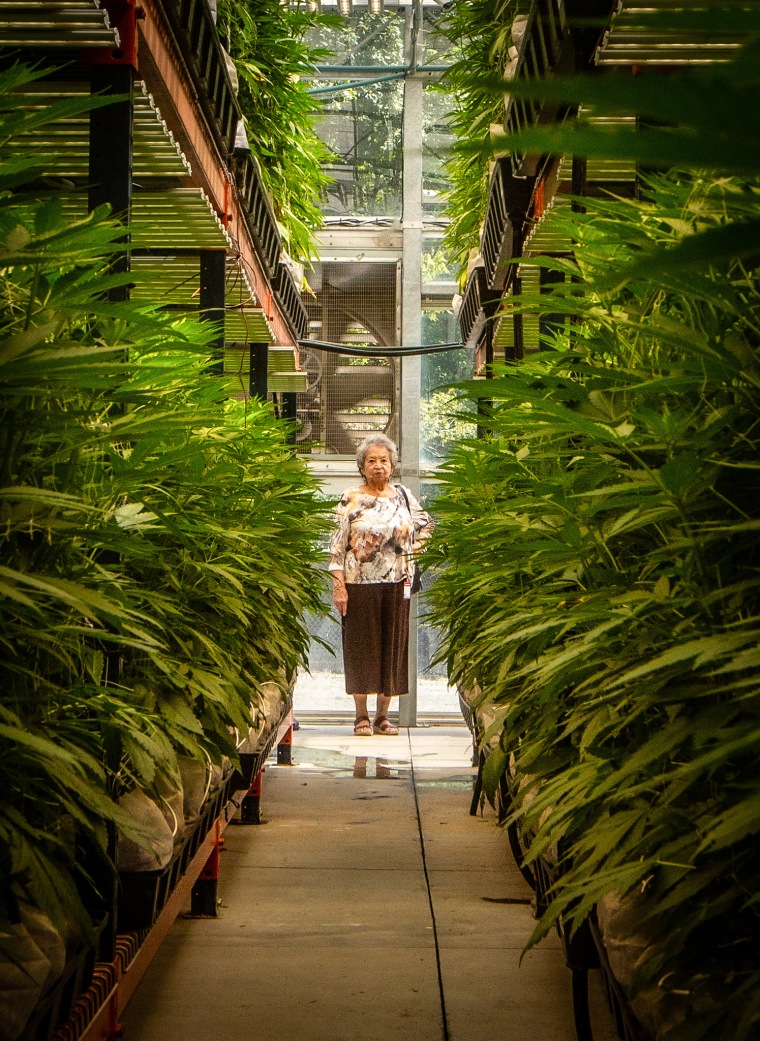
In 2020, the Oglala Sioux Tribe in South Dakota became the first tribal nation in the U.S. to legalize recreational use of marijuana in a state that still considers it illegal, according to NORML, a national cannabis advocacy organization. And tribes including the Suquamish Tribe and the Las Vegas Paiutes have been operating their own dispensaries for years.
Many tribal governments across the country, including the Eastern Band of Cherokee Indians, rely on casino revenues to bolster their economies, paying for infrastructure and services like health care and, in some cases, direct payments to tribal citizens. As some states are moving into sports betting, Sneed said tribal nations like his are looking for new ways to diversify their revenue streams. Even though he’d prefer to hold off on approval of recreational use, Sneed said that being the only legal seller of marijuana in North Carolina could be a good investment.
“As I tell my colleagues here in the government and also my constituents, the window of opportunity for windfalls of revenue in the cannabis industry, that window is closing quickly,” Sneed said.
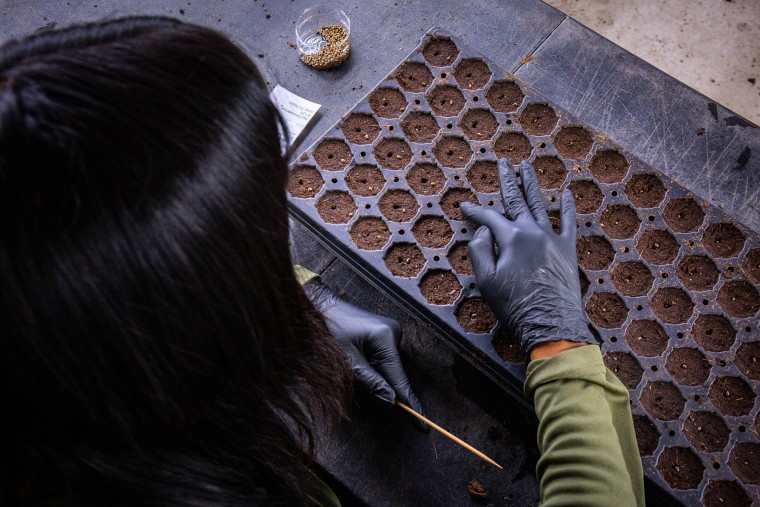
It’s also an opportunity to provide hundreds of jobs to the tribe’s more than 16,000 members, said Forrest Parker, general manager of the tribe’s cannabis business, Qualla Enterprises. Parker said the company is doing everything it can in-house, including operating 75 indoor grow facilities and preparing to open a dispensary that will sell marijuana and products like edibles and vape cartridges.
A research company hired by Qualla Enterprises found that in order to meet the needs of medicinal patients it will have to grow 40,000 pounds of marijuana a year — and 80,000 if recreational use is approved. Parker said currently Qualla Enterprises can produce about 25,000 a year, which means the business will eventually have to expand.
Parker said he sees the tribe’s movement into the marijuana market as potentially life-changing for some tribal members.
“That’s what motivates me every day, to know what this project is going to do to the people that I care about the most for generations to come,” he said.
